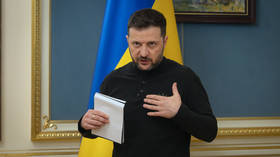Texas researchers develop method to retrieve, weaken traumatic memories in major breakthrough

Researchers from Texas A&M University believe they have developed a method to safely retrieve traumatic memories and potentially disrupt them, thereby reducing their power to evoke fear responses in PTSD patients.
Stephen Maren, professor of psychological and brain sciences, and his team explored commonly used techniques to reactivate traumatic memories in patients’ minds and found that they can create a window of opportunity for these memories to be altered or erased completely.
For example, veterans experiencing post-traumatic stress disorder (PTSD) may be asked to recall specific external stimuli, such as flashes of light or particular sounds, from the triggering memory as trauma cues in therapy.
The thinking behind this technique is to elicit memory recall without inflicting any additional suffering on the patient, with a view to dampening their relived experiences through exposure.
Also on rt.com German researchers create, then erase, false memories in people’s mindsHowever, in exposure therapy, the underlying traumatic memory still exists and may still trigger a relapse at any time. In other words, it can treat the symptoms of a recent episode, but doesn’t necessarily tackle the underlying cause.
Using a technique known as backward conditioning procedure, the researchers think that it may be possible to isolate a memory through indirect association. By attaching the triggering memory to an indirect cue, which can then be used out of context, it may now be possible to reduce the overall fear response in the patient through more indirect exposure, while destabilizing the original memory itself through repeated decontextualization.
The research is still in its infancy but may allow for additional memory techniques and treatments to completely disrupt the original, damaging memory by making use of this newly created window of opportunity.
Think your friends would be interested? Share this story!












